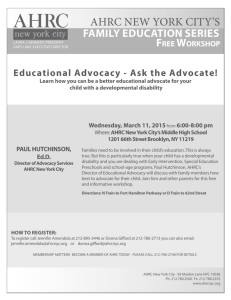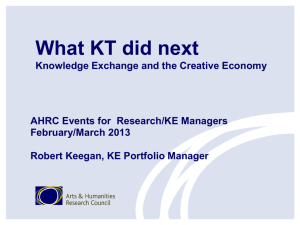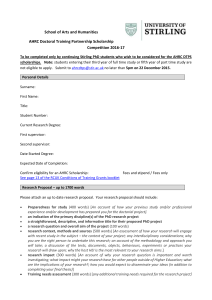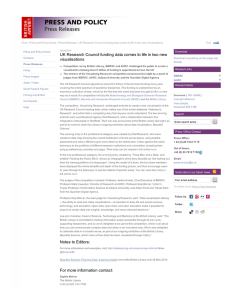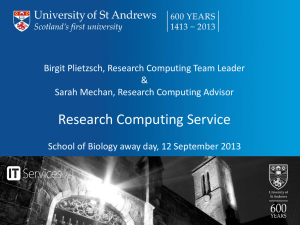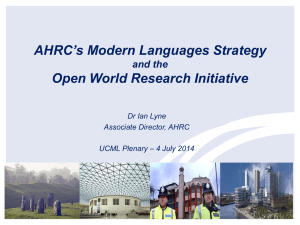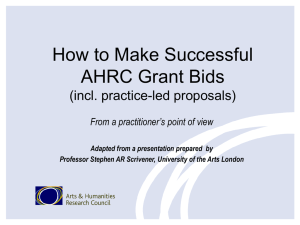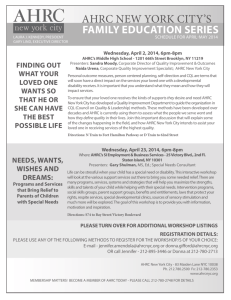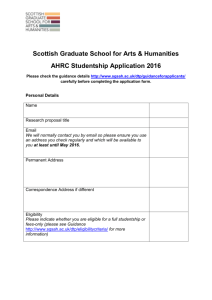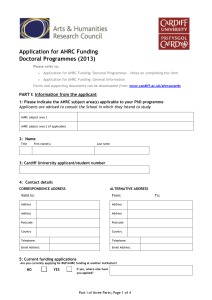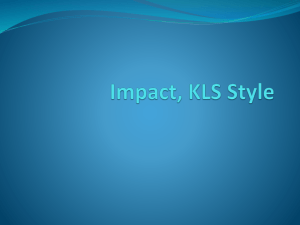`The View from a Committee Room: An AHRC Panel Member`s Top
advertisement
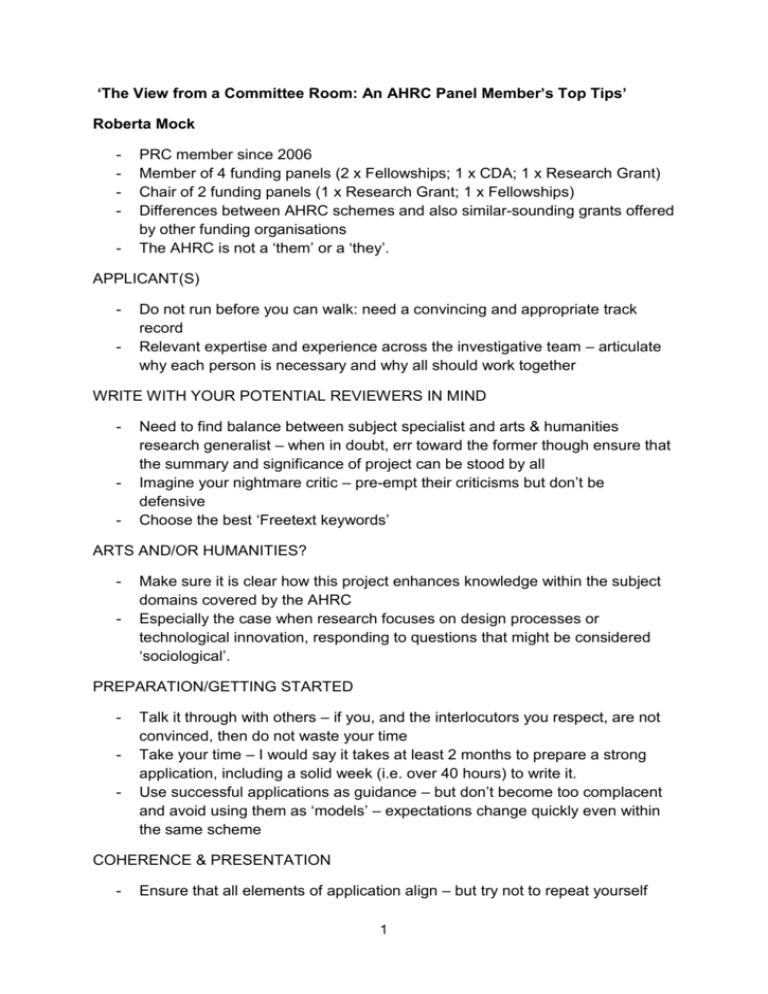
‘The View from a Committee Room: An AHRC Panel Member’s Top Tips’ Roberta Mock - PRC member since 2006 Member of 4 funding panels (2 x Fellowships; 1 x CDA; 1 x Research Grant) Chair of 2 funding panels (1 x Research Grant; 1 x Fellowships) Differences between AHRC schemes and also similar-sounding grants offered by other funding organisations The AHRC is not a ‘them’ or a ‘they’. APPLICANT(S) - Do not run before you can walk: need a convincing and appropriate track record Relevant expertise and experience across the investigative team – articulate why each person is necessary and why all should work together WRITE WITH YOUR POTENTIAL REVIEWERS IN MIND - - Need to find balance between subject specialist and arts & humanities research generalist – when in doubt, err toward the former though ensure that the summary and significance of project can be stood by all Imagine your nightmare critic – pre-empt their criticisms but don’t be defensive Choose the best ‘Freetext keywords’ ARTS AND/OR HUMANITIES? - Make sure it is clear how this project enhances knowledge within the subject domains covered by the AHRC Especially the case when research focuses on design processes or technological innovation, responding to questions that might be considered ‘sociological’. PREPARATION/GETTING STARTED - Talk it through with others – if you, and the interlocutors you respect, are not convinced, then do not waste your time Take your time – I would say it takes at least 2 months to prepare a strong application, including a solid week (i.e. over 40 hours) to write it. Use successful applications as guidance – but don’t become too complacent and avoid using them as ‘models’ – expectations change quickly even within the same scheme COHERENCE & PRESENTATION - Ensure that all elements of application align – but try not to repeat yourself 1 - Don’t switch between 1st and 3rd person in same document Spelling, grammar and capitalization do make a difference Follow AHRC guidelines for headings in Case for Support IMPACT - Do not overinflate claims Have a strategy or activity that directly reaches each beneficiary group listed. ETHICAL IMPLICATIONS - If there are any human participants, there ARE ethical implications. IT’S ALL IN THE DETAILS - To which conferences do you intend to propose papers? Which element(s) of project are you likely to discuss at this stage? To which journals will you be submitting? Breakdowns of budget and how numbers are derived (Justification for Resources) WORK-PLAN - Don’t skimp on hours – If it is clearly impossible to complete the project within the hours requested, make it clear how the rest will be covered. Ensure time-scale is not too compressed and there is space for revision VALUE FOR MONEY? - Reviewers & panels want to know that the proposal is well-considered and achievable within resources Very expensive proposals do tend to be scrutinized much more closely since the commitment is bigger Reach (i.e. having a clear strategy to disseminate the research to people who might be interested in it) and significance tend to be taken into account more than overall budget MONITORING PROGRESS - Build in reports to management groups Mentoring? Line management and regular reviewing processes INSTITUTIONAL SUPPORT/INTERNAL PEER REVIEW - AHRC Peer Review College Member or Former Panellist Somebody who has successfully applied for funding (preferably to AHRC) Somebody with subject/discipline-specific expertise 2 PI RESPONSE/RIGHT TO REPLY - A super critical peer review is not the end of the world Be gracious no matter what Panel reads everything and usually recognises when a reviewer is ‘out of line’ Respond directly to requests for more info or misunderstandings – don’t change your proposal but use space to elaborate Don’t repeat the nice comments that were made – or use one reviewer to dispute another. Use a peer reviewing process – have somebody else look at it before sending response back to AHRC. INCREASING YOUR CHANCES - - - In each panel meeting I have attended, there seems to always be consensus about which proposals are the best – but there is some ‘chance’ involved in which proposals come through at the same time as yours. Every excellent proposal I’ve seen in a panel has been funded – though not every one I thought was excellent as a peer reviewer! Seems to be more of an issue about the ordering of proposals around the funding ‘cut off’ point (which the panel does not know as it has to do with how much the top ones ‘cost’) If there is an ECR route and you meet the qualifications, use it (or perhaps there is a Co-I that is an ECR who can become the PI). Respond to highlight notices – but don’t try to shoehorn your application into a theme; the case must be clear and compelling BURNING QUESTIONS? 3
